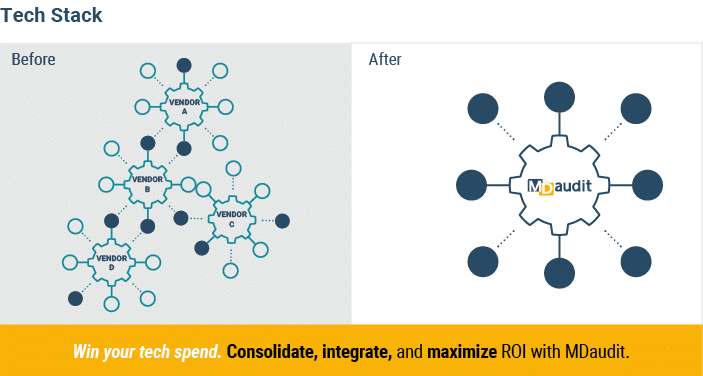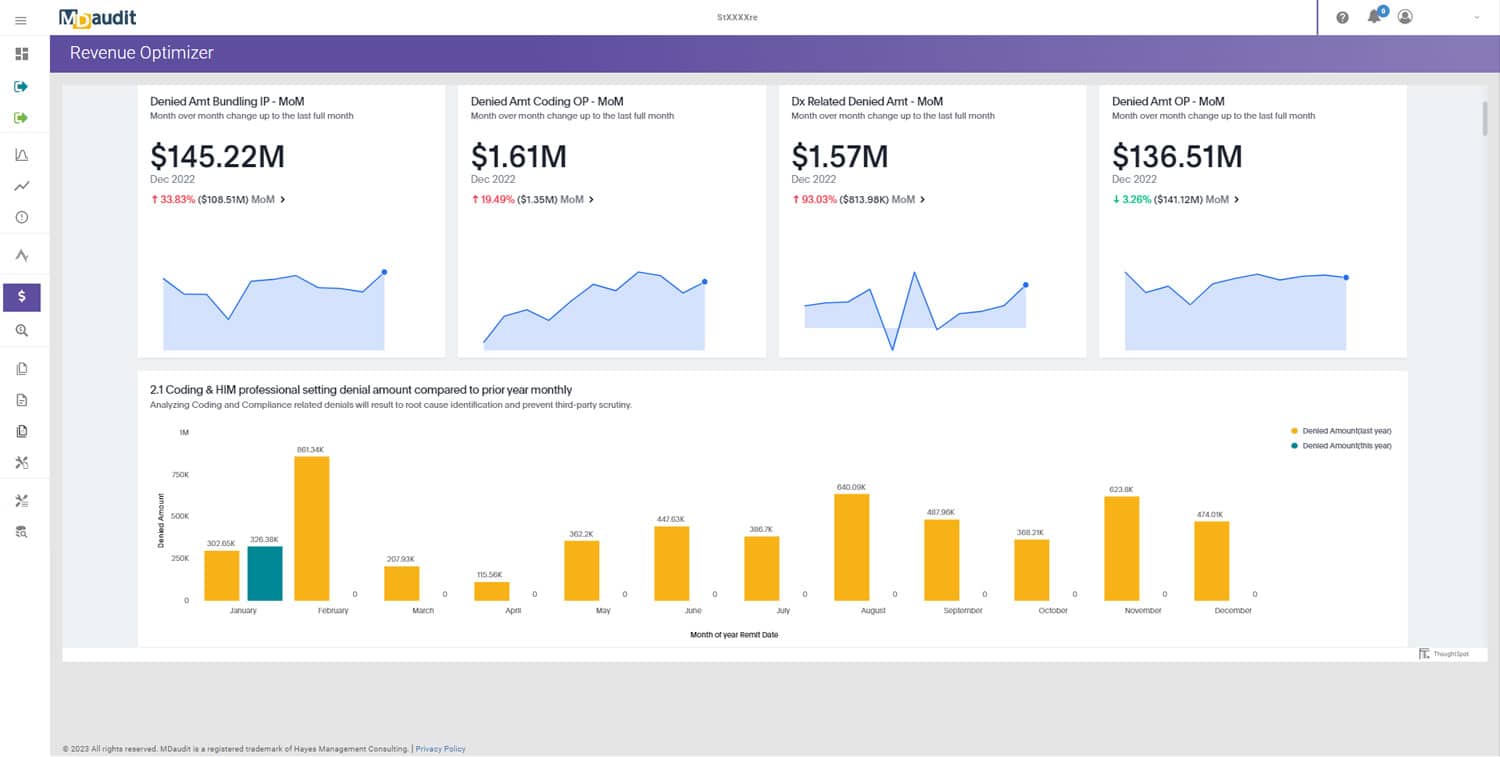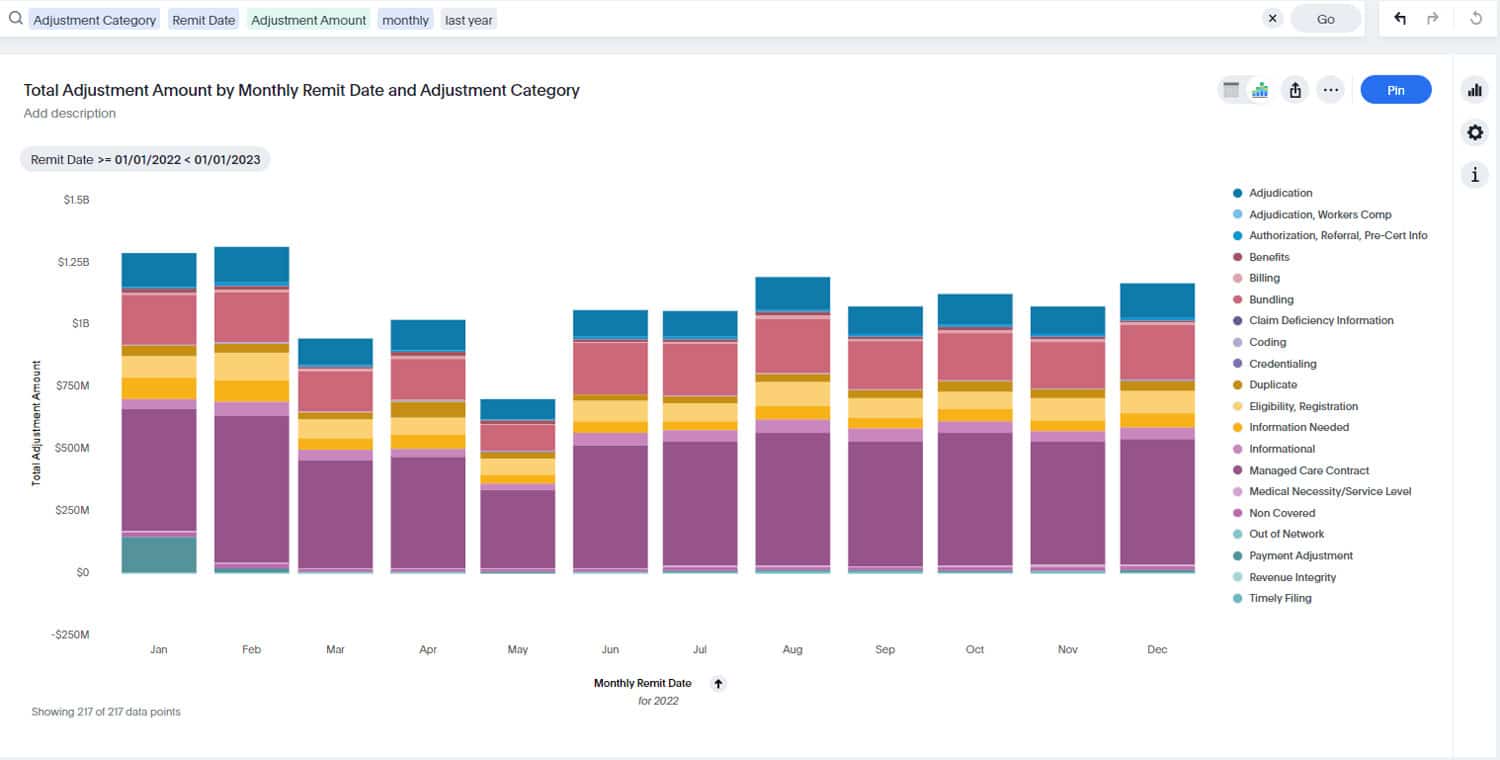How Healthcare Leaders Can Maximize ROI and Reduce Complexity with Smarter Revenue Cycle Solutions
Executive Summary
Healthcare leaders are facing rising technology spending, overlapping systems, and complex integration challenges. These issues strain budgets, complicate workflows, and obscure return on investment (ROI).
A Forrester survey revealed that 90% of organizations are actively seeking to unify their IT resources, and 62% have already begun consolidating to a few core platforms.

MDaudit provides a unified solution for revenue cycle management (RCM), compliance, and audit workflows, reducing redundancies, enhancing revenue capture, and integrating seamlessly with existing systems.
The Current State of Tech Spend in Healthcare RCM
- U.S. hospitals’ average IT operating expense was $9.51 million in 2023, up from about $7.97 million over the prior years. IT spend represents roughly 2.29% of operating expenses.
- Organizations are increasingly concerned about both costs and electronic health record (EHR) / system integration. In one report, 49% of providers cited costs among their top pain points, 42% cited EHR integration issues. According to a recent MIT Report, “95% of generative AI pilots at companies are failing.”
- The healthcare IT market is large and growing. One source projects that global healthcare IT spend will be ~$231.2 billion in the coming 12 months; the U.S. accounts for ~67% of that.
These numbers show that tech investments are large, unavoidable, and under pressure to deliver more than just feature sets.

The Pros and Cons of Healthcare Tech Investments
Pros
- Automation & Efficiency: Automating manual tasks (e.g., auditing, denials management) reduces labor hours, errors, and delays.
- Improved Compliance & Revenue Capture: Better coding, audit trails, and compliance reduce the risk of payment clawbacks and missed revenue.
- Scalable Insights & Analytics: More complete data yields better decisions, trend detection, and anomaly spotting.
- Vendor Consolidation & Cost Savings: Reducing overlapped tools can cut the total cost of ownership.
Cons
- High Upfront & Ongoing Costs: Purchasing, licensing, maintenance, and training add up. Integration and data migration can be resource-heavy.
- Overlap & Redundancy: Many point-solutions do some part of the revenue cycle, or compliance, or audits, or denials. When multiple tools cover the same ground, you pay multiple times.
- Integration Challenges: Legacy systems, EHRs, disparate data formats, and poor interoperability slow down implementation and reduce real-world performance.
- Unclear ROI & Long Payback Periods: If technology doesn’t deliver measurable financial gains fast, leadership may lose confidence.
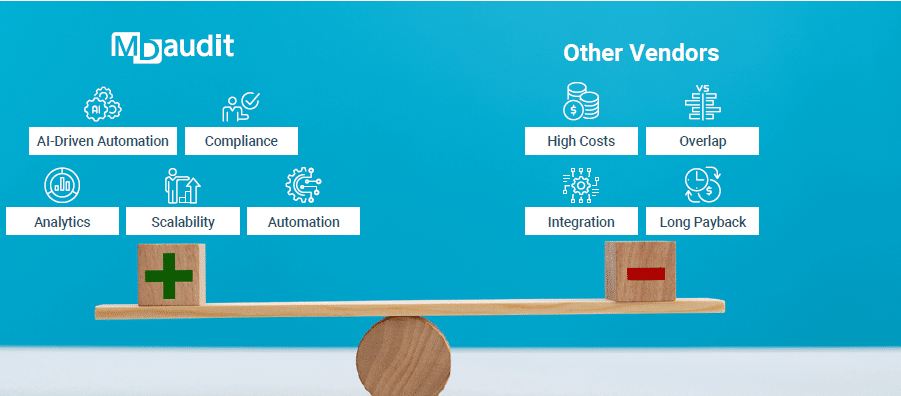
What Healthcare Leaders Should Demand from Technology
To “win the tech spend,” decision-makers should look for solutions that offer:
- Consolidation of overlapping tools: Fewer vendors doing more of the work.
- Fast, measurable ROI: Revenue capture, decreased denials, fewer audit liabilities.
- Tight integration with EHRs, billing systems, audit requests, and external payers.
- Scalability & Flexibility: Capability to adapt to regulatory changes, growth, and evolving payer demands.
- Transparency & risk mitigation: Clear audit trails, regulatory compliance, visibility into revenue leakage.
- AI with ‘Humans in the Loop’: Features that speed up data analysis and automation. Helping humans make faster and more informed decisions.
Why MDaudit Wins: Key Strengths and Advantages
Here are the reasons MDaudit stands out:
- Revenue Cycle + Compliance Focus: MDaudit’s suite encompasses billing compliance, audit workflows, external audit response, revenue integrity, and denials prevention. Rather than needing separate tools for each function, one integrated platform handles many. Read more in this Amazon Web Services case study on MDaudit.
- Proven Case Studies & ROI:
- MDaudit’s Tell Your ROI Story resources show how audit, coding accuracy, and denial prevention translate into executive insights.
In one “Enterprise Revenue Integrity & Revenue Cycle” case, a southeastern mid-sized hospital using MDaudit saw reduced risks and denials.

Main Line Health case: Five hospitals, 40+ offices, 2,000+ physicians. The implementation of internal audit workflows by MDaudit yielded better oversight and revenue recovery.

- AI & Automation for Efficiency: MDaudit uses award-winning AI-powered processes, such as SmartScan.ai, which automates the extraction and formatting of data from complex external payor audit request documents, reducing dependency on manual reviews. This accelerates responses to external audits, improves accuracy, and preserves revenue. Ultimately, helping executives spend their time deciphering insights 20% of the time, leaving 80% for making decisions.
- Vendor Consolidation & Overlap Elimination: Because MDaudit provides multiple revenue integrity functions under one umbrella, it reduces the number of point solutions needed. This addresses overlap, simplifies vendor management, lowers integration complexity, and reduces cumulative costs.
- Integration & Monitoring: Continuous monitoring of billing risk, auditable workflows, and the ability to detect anomalies across the revenue cycle. Help avoid downstream revenue leakage and audit penalties.
Why MDaudit Wins

Trade-Offs & Risks to Mitigate
Even with a strong platform, organizations should be aware of and plan for:
- Implementation costs: Data migration, workflow redesign, and staff training require up-front investment.
- Change management: 91% of employees are frustrated with workplace technologies, and overburdened healthcare systems are no place for tech overload and burnout. While some users may resist change, the general concern remains over adjusting processes and staff bandwidth to do so. Leadership buy-in remains critical.
- Customization vs. standardization: Too much customization can drive cost and slow updates. Standard features may not align 100% with every hospital’s needs.
- Data quality & integration gaps: The platform is only as good as the inputs. Poor quality or inconsistent coding, EHR data, or billing documentation reduces the effectiveness.
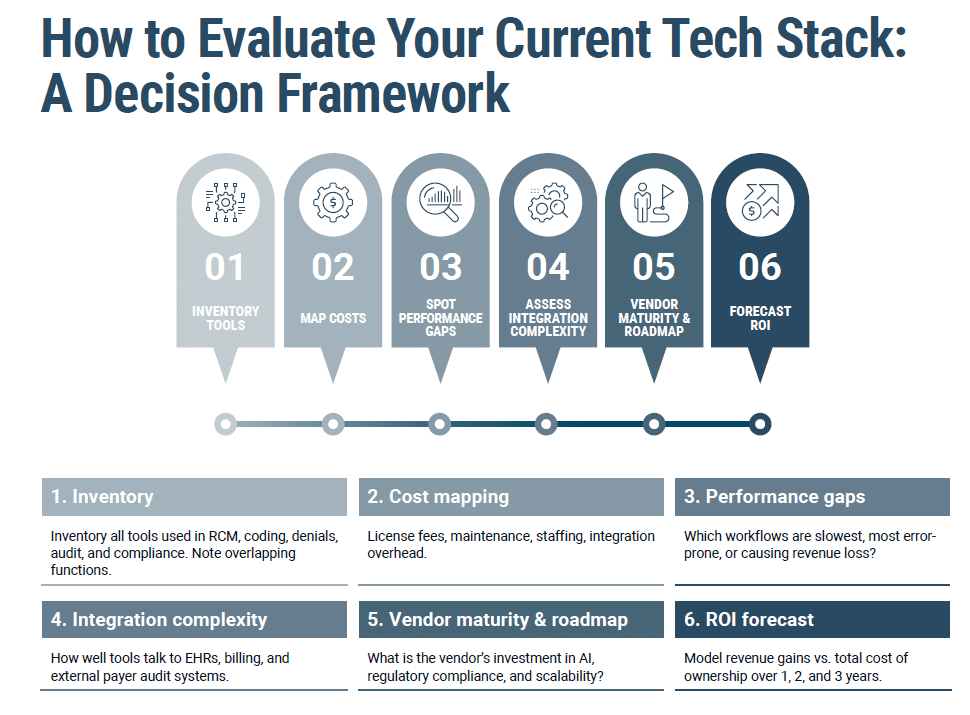
Conclusion
Technology spending in healthcare will continue to grow. Despite present revenue obstacles. Leaders who accept vendor sprawl, duplicated functionality, or disjointed workflows are unlikely to maximize value. MDaudit offers a solution built to reduce overlap, integrate deeply, deliver measurable ROI, and protect revenue. With proven case studies and AI enhancements, MDaudit is positioned to help organizations join the forefront of winning the tech spend battle.
